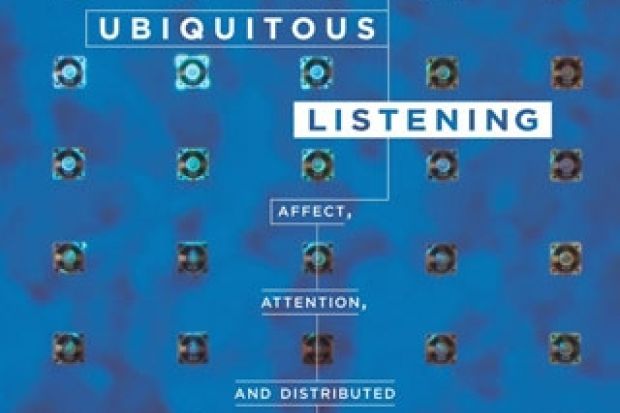Some years ago, a television prank show dropped in on the home of a Muzak executive – bringing along a couple of speakers and an amplifier so he could enjoy his lovely products from his own lawn. The point of the gag, of course, was that even the man producing it would not want to hear anything so mind-numbingly bland.
Music, though, is everywhere now, the majority not so much piped into the elevator or coffee shop as chosen by us as something not to listen to while we drive, exercise or write. In Ubiquitous Listening, Anahid Kassabian points out that although we are exposed to music more than any other medium, “the vast majority of it is not destined for attentive engagements”.
Kassabian wants to go much further, however. If the subject of the book “is all those musics that we listen to as secondary or simultaneous activities”, the question is how that listening engages us and activates the world we move in. “What I am calling for”, Kassabian says, “is nothing less than a wholesale rethinking of the way we think about, talk about, and study music, and ourselves in it.”
Unfortunately, the terms of that rethinking are flawed at best. Surely we are, in the conventional sense of the term, talking about ubiquitous hearing, or simply exposure, rather than listening? Kassabian wants to redefine “listening” away from a straightforwardly voluntaristic model, but you don’t change the implications of reality by changing the term (as in, during the bad old days, “nuclear excursion”, where it sounded like the plutonium was taking a jolly charabanc ride to Bognor); you just confuse your readers.
More problematically, Kassabian spends a page in the introduction on “distributed subjectivities”; I spent several minutes trying to extrapolate what, concretely, that page meant – and I’ve read both Deleuze and Guattari, meaning I should be in with a chance. You simply wind up, at times, with the sense that distributed subjectivity is an overtheorised characterisation of fellow feeling (“once I encountered these albums…I was part of a distributed subjectivity again”, and that’s not about the love felt during the days of Acid House).
Normally, assessing a book rightly means simply measuring it relative to its own stated aims. After all, no one criticises Moby-Dick for failing to address the plight of krill. At certain points, however, and this is one such case, you have to stop your flights of fancy and think about the krill. Talking about attention, affect and subjectivity in 2013 brings with it the need for sociological, political and maybe even ethical dimensions to your analysis. A good example is the question of shortening attention spans. It is crucial, obviously, to understand what’s happening before jumping to indignation or good old-fashioned freaking out, but the idea of a “generational divide in cognitive modes” dignifies it, as if there’s something fuddy-duddy about the ability to shut the heck up, do one thing rather than three and pay attention for longer than a goldfish takes to circle its bowl.
These are not fine points of Apollonian gentility. What will shortening attention spans mean for democracy? What does the inability to sit in silence imply for, if one cares about such things, spiritual practice? Of course, we may be on the cusp of a magical new world of polyattentive flexibility, and perhaps it is only lack of perspective that makes ubiquitous music and the phenomena which accompany it seem so dangerous. All signs so far, however, suggest intelligence – the intelligence that gave us not only Beethoven symphonies, Armenian jazz or The Mars Volta but also the iPods on which some of us hear them – deteriorating entropically, like a car exploding down a mountainside in a bad action movie. It’s too big a danger to neglect to address.
Register to continue
Why register?
- Registration is free and only takes a moment
- Once registered, you can read 3 articles a month
- Sign up for our newsletter
Subscribe
Or subscribe for unlimited access to:
- Unlimited access to news, views, insights & reviews
- Digital editions
- Digital access to THE’s university and college rankings analysis
Already registered or a current subscriber?
